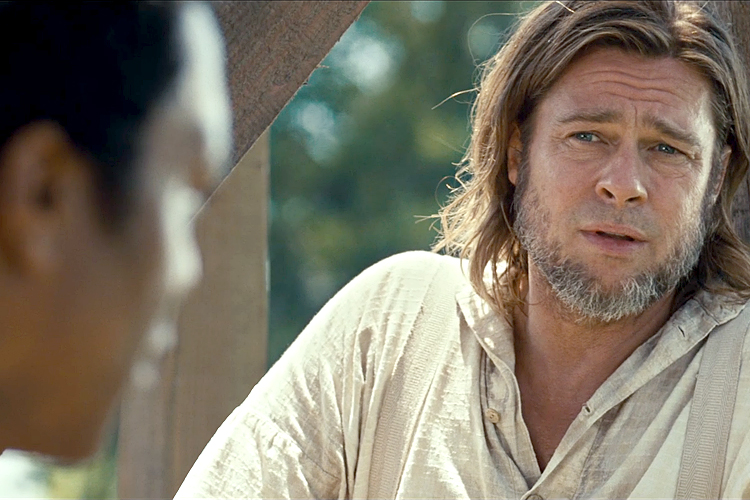In December of 1836, black abolitionist David Ruggles boarded a Portuguese slave ship in the New York harbor, freed its captives and had the white captain arrested. Tensions still ran high in the city from two years earlier, when whites had launched coordinated attacks against black businesses and neighborhoods in lower Manhattan. As the trial of the captain proceeded (he was never convicted), Ruggles barely escaped a kidnap attempt by a gang of slave traders in retaliation for his activism.
The story of Solomon Northup, which “12 Years a Slave” chronicles in heartbreaking detail, comes from a similar moment of American tumultuousness: White slave traders kidnapped Northup, a husband and father of two, and sold him to a Southern plantation. Northup languished for 12 years before secreting a letter to his people in Saratoga with a benevolent white man and securing his freedom.
“12 Years a Slave” is a stunning cinematic achievement. Director Steve McQueen attacks the brutality of slavery with an unflinching eye, spares us no detail of the degradation that white America inflicted on the people it considered its property. The performances, particularly of Chiwetel Ejiofor and Lupita N’yongo, are breathtaking; we feel the depth of each character with a few simple cinematic strokes.
About three-quarters through the movie, Brad Pitt suddenly shows up and, essentially, saves the day. Never mind that Pitt is also one of the film’s producers (an interesting contrast to Quentin Tarantino, who cast himself as an Australian slave trader in “Django Unchained.” But that’s a whole other essay). In this otherwise monumental and groundbreaking film, written and directed in the age of stop-and-frisk and “stand your ground,” of Trayvon and Aiyanna and Marissa and Renisha, did we really need yet another white savior narrative?
We absolutely did not.
Some have pointed out that it’s simply being true to the historical record of Northup’s life. But the creative process begins with selection: which narratives we decide to privilege over others matters. Our myths reveal mountains about who we are as a nation. Steven Spielberg’s “Lincoln” erased Frederick Douglass, reinforcing the tired notion that a singular white man, through the sheer force of his moral conviction, brought slavery to an end. In “Lincoln,” as in “12 Years,” this cliché not only hobbles the film’s cultural relevancy, it is a narrative failure as well. The story begins with Lincoln already having formed his opposition to slavery. Without the history of his relationship to Douglass, we have no idea how this president is willing to risk so much to pass the 13thAmendment. There is no inciting incident, no motivating factor: We are left with just a determined man. And the story suffers for it.
I agree with dream hampton that we need more, not fewer, narratives about slavery. As Roxane Gay writes, so much of these films’ cultural commerce depends on the spectacle of black suffering. The few victories we’re shown come almost exclusively at the deus-ex-machina-like intervention of a white savior, a painful irony considering the historical context. “12 Years” was brilliant in part for the depth and scope it afforded particularly the female characters. The film leaves you with the haunted feeling of having glimpsed shreds of so many stories, most tragic, some triumphant. This makes the final twist of more of the same all the more painful.
What would a cinematic aesthetic of American history look like without the white savior? Perhaps the myth of white American exceptionalism would begin to crumble. Filmmakers would have to struggle to find new ways of getting people of color out of tight situations. Unpredictability might ensue; creativity would thrive. Maybe we’d finally see a Harriet Tubman biopic, instead of a cheap joke video at her expense.
David Ruggles, whose audacious opposition to slavery covered decades and included direct action, legal recourses, community organizing and journalism, has all but disappeared in the shadows of history. His house was the newly escaped Frederick Douglass’ first stop upon arriving in New York City. A decade later, Ruggles saved Sojourner Truth’s life at a clinic in Northampton, Mass. He spoke about the sexual subjugation of black women and solidarity across the fault lines of gender and race, topics we wrestle with to this day. These are historical crossroads and struggles we need to know about and celebrate.
The U.S. culture machine has found the temerity to show our ugly history with brutal clarity. What resonates about slavery narratives is not just that mainstream white culture has worked so hard to avoid dealing with them; it’s that the mentality of subjugation persists in American culture. We’re still picking up the pieces, still moving from crisis to crisis. Unraveling today’s tragedies will always depend on a multilayered, intersectional understanding of our past. It’s time to let go of the same played-out savior game and unearth the lost heroic narratives of black freedom fighters.

